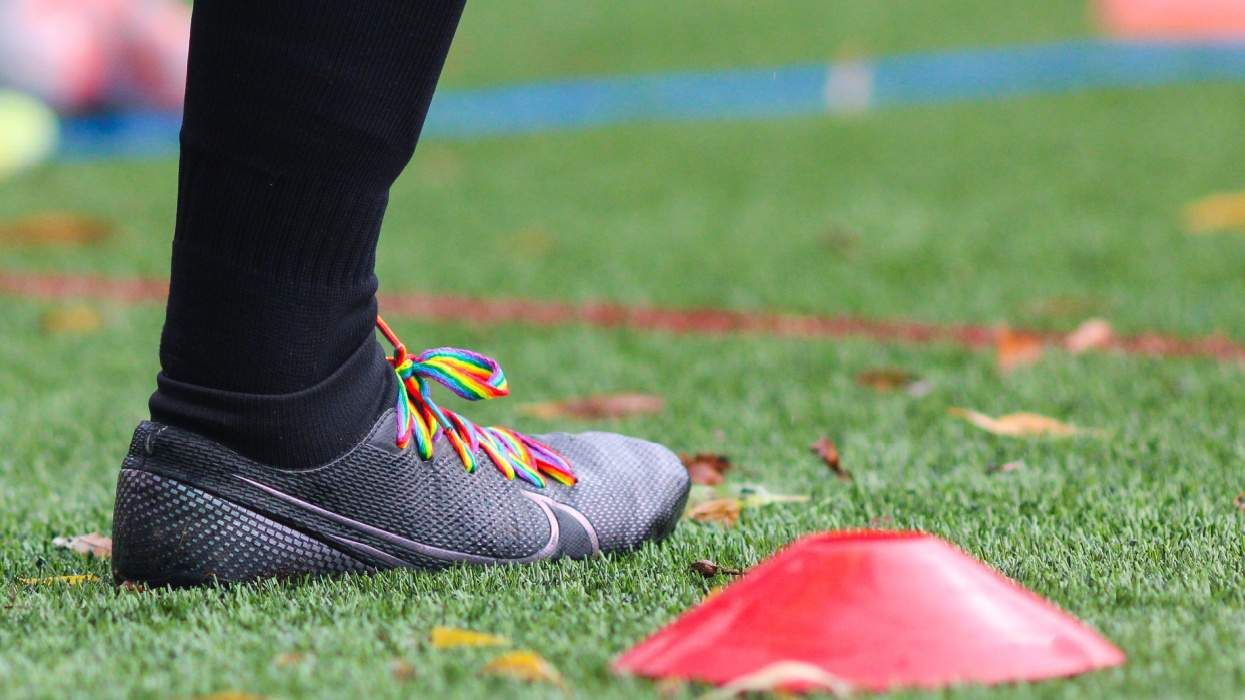Canada's issuance of a coin to mark the 50th anniversary of the nation's decriminalization of homosexuality is drawing both praise and criticism.
The one-dollar coin, or "loonie," released Tuesday, shows two overlapping faces of indeterminate gender. It "reflects gender fluidity and the spectrum of genders and is left open to interpretation: They may belong to two individuals or they may represent different aspects of one's identity," said Joe Average, the artist who designed the coin, NBC News reports. Three million of the "Equality" loonies are being minted beginning this week.
Marie Lemay, president and CEO of the Royal Canadian Mint, issued a statement calling the coin "a powerful way to recognize Canada's profound belief in equality and inclusion." It commemorates Parliament's passage of a law in 1969 that decriminalized private same-sex activity between people 21 and older.
Several LGBTQ activists said issuance of the coin is a positive move. It marks "a particular milestone in recognition of LGBTQ2 people in Canada," Helen Kennedy, executive director of Egale Canada, told NBC News, adding that it is "hugely significant and something that we should be proud of." The "2" in the LGBTQ2 acronym refers to two-spirit people, as indigenous Canadians (and some Native Americans) call those who transcend traditional concepts of sexuality and gender.
Randy Boissonnault, a special adviser to Prime Minister Justin Trudeau on LGBTQ issues, added that the coin "is an opportunity to reflect on a landmark event in our country's history, and a reminder of the progress still to be made as we work toward inclusion and equality for all LGBTQ2 Canadians."
Religious right activists objected to the loonie. "Grown adults have a right to do whatever they like in the privacy of their own bedroom, but there is no business for the government putting this on money," David Cooke, executive director of the Canadian branch of conservative Christian group Citizen Go, told NBC News. The coin "glorifies" the LGBTQ "lifestyle," he said, adding, "I can't have it in my possession."
But some LGBTQ advocates criticized it as well. Activist Gary Kinsman said the coin promotes a "mythical position" that the 1969 law ended the criminalization of homosexuality. It was actually just a partial reform, he told NBC News, as those engaging in gay sex could be prosecuted under a "gross indecency" statute until 1988. And police raided gay bars and bathhouses in Canada throughout the 1970s and '80s, he said.
He added that LGBTQ Canadians still have not achieved full equality; the nation has a policy preventing gay and bisexual men from donating blood unless they've been celibate for a year, and nondisclosure of one's HIV-positive status to sexual partners can be cause for prosecution. With the coin, Trudeau's Liberal Party is trying "to claim a progressive veneer," Kinsman said.
Kennedy, however, said she saw no political motivation behind the coin. "This is so not political," she told NBC News. "This is [the] basic human right to be able to exist, and that is what the mint is acknowledging."















